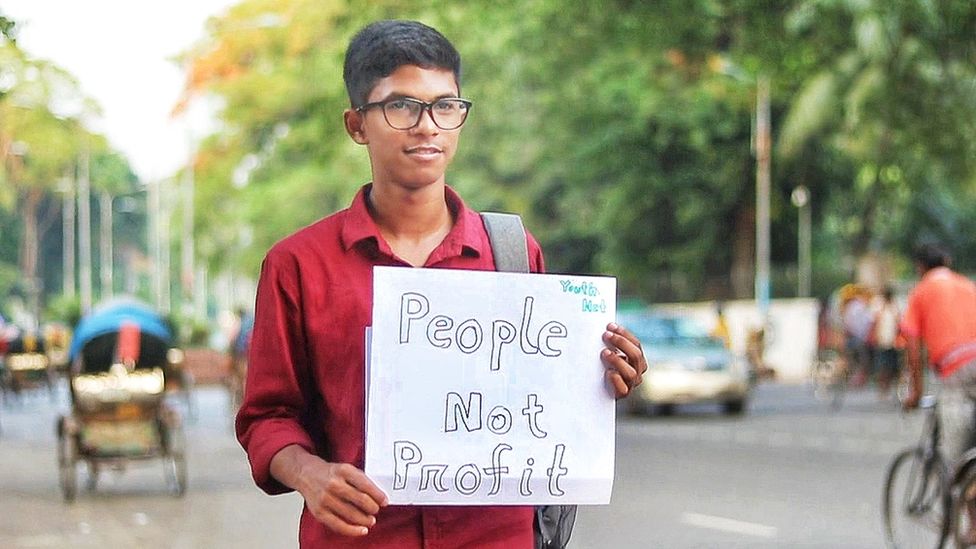-

-
-
Loading

Loading

The COP28 summit in Dubai has brought global leaders together to discuss climate change, but environmental activists are still facing challenges from climate sceptics. Young people from five different countries have shared their experiences of trying to change the minds of those who deny the reality of climate change. Hossna Hanafy, an artist from Egypt, initially did not believe that climate change was a real issue. She thought it was not a global problem and did not consider that human behavior might be involved. However, growing up in Alexandria, a city at risk from rising sea levels due to melting ice caps, made her realize the seriousness of climate change. Despite her own skepticism initially, her sister's influence and further research changed her perspective, leading her to run workshops for children and teenagers to educate them about climate change through crafts and games. Yudhishtir Chandra Biswas, a student in Bangladesh, faced the challenge of convincing his cousin, who believed that climate change was a hoax spread for political reasons. He used scientific evidence and reports to show her that climate change was causing extreme weather events in their home country. Similarly, Denembaye Julienne from Chad used photographic evidence to prove to her community that climate change was already affecting their lives, as Lake Chad had shrunk by 90% due to climate change. Murtaza Habib from Pakistan had difficulty changing the attitudes of his elderly relatives, who saw climate change as a distant issue not affecting them. He had to be patient and respectful in addressing their concerns and fears, eventually leading them to adopt a more sustainable lifestyle. Rachel McCloy, an associate professor in applied behavioral science, emphasizes the importance of understanding people's individual goals and values in order to effectively engage with them on climate change issues. Despite efforts to change the minds of climate sceptics, it is not always successful. Conspiracy theories and misinformation continue to spread online, making it challenging to persuade those who are spreading them. Alison Anderson, a professor of sociology, suggests focusing on a larger group of people who may have doubts or misconceptions about climate change and are more open to alternative views. In conclusion, young activists from various countries are working hard to change the minds of climate sceptics through education, evidence, and empathy. While it may not always be easy, their efforts demonstrate the importance of addressing climate change and encouraging more sustainable behaviors.